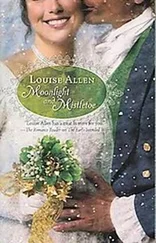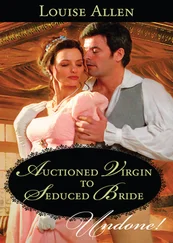As the screams and tantrums occasioned by the discovery, capture and banishment of the mouse subsided, Will wondered whether he was doomed to a stomach ulcer by the time he was thirty and mentally prepared himself for the horrors of the daily meeting with the children’s tutor and governess.
It was too much to expect that a few weeks could undo the damage of a childhood where the only rule their doting and deluded parents had imposed was to do exactly as one wished, the moment one thought of it and without any pause for reflection. That way, his stepmother had explained, the natural genius of each child would unfurl tenderly, like the petals of a flower. They would learn what they needed to know as, and when, they felt the necessity.
The only small mercy was that they were not illiterate, he thought, doggedly finishing his ham and eggs. The desire to read completely unsuitable books had driven all of them to master their letters and then, when they wanted to compose their own stories, to learn to write. Mathematics, however, was apparently a closed book to all of them and as for basic etiquette, that was an alien concept he was painfully—for all concerned—imposing on them.
I need a wife , he thought again.
He could teach the boys to be gentlemen, but his sisters needed more than a governess. They had their mother, of course. Lady Bromhill was living in the Dower House, writing another tract on the natural education of children, no doubt, and holding forth at length to anyone who would listen on the iniquity of imposing rules of mourning on women. Her grief was deep and genuine, Will fully acknowledged, but her methods of expressing it were outrageous. He lived in daily anticipation that she would scandalise the neighbourhood by appearing in a crimson gown or emulate the women of Classical societies by rending her clothing and beating her bare bosom while wailing in Ancient Greek.
Will shuddered. It was unfortunate that his siblings would be exposed to another unconventional female tomorrow when they called on the Bishop, because the last thing that they needed was the example of more shocking behaviour. He mentally squared his shoulders; his grandfather had shown him all too clearly that being a duke was no easy undertaking but, somehow, he had not expected that raising a delinquent family would be part of his duties. For the thousandth time he reminded himself that they had recently lost their father, that their lives had been turned upside down as much as his had, that he must temper discipline with kindness.
* * *
Verity surveyed the sunny room at the front of the house with muted satisfaction, given that she was about to act as hostess to the Disapproving Duke. The Chinese drawing room was the smaller of the two reception rooms and, being next to the library, was the most convenient and comfortable for her father. He was seated in a deep leather armchair, discussing the morning’s newspapers with Mr Hoskins, who was reading out articles which Papa would then comment on by sign language.
They had reached the reports from the House of Lords which always prompted vehement gestures when Bosham, their butler, announced, ‘His Grace the Duke of Aylsham, Lady Althea Calthorpe, Lady Araminta Calthorpe, Lord Basil Calthorpe, my lord.’
Verity did a rapid assessment of the ages of the juvenile party and sent Bosham a meaningful look. He nodded and departed, hopefully to warn the kitchen that more than Oolong tea and dainty cakes would be needed.
‘Miss Wingate, Your Grace,’ Mr Hoskins said, taking on himself the introductions that her father could not make.
The Duke blinked, stared and then had himself under control almost before she realised how surprised he was at her appearance. Verity produced a smile and saw a gleam of something very like approval in those blue eyes.
I am just the same woman as the one who shocked you yesterday , she thought crossly. I am wearing a suitably modest and pretty afternoon gown, my hair is just where it should be and I have powdered away the evidence of a touch of sun on my nose. So now you approve of me, do you? But I do not crave your good opinion, Your Grace.
He shook hands with her, went across to her father and waited a barely perceptible moment to be sure a handshake was going to be returned before offering his hand.
Mr Hoskins bowed. ‘My lord welcomes you to the Old Palace, Your Grace. I am Christopher Hoskins, chaplain and secretary to the Bishop.’
The Duke was not too top-lofty to shake hands with Mr Hoskins as well, which pleased Verity. He turned to beckon forward the youngsters. ‘Bishop, Miss Wingate, Reverend Hoskins, may I introduce my brother and sisters? The three younger ones have remained at home.’
They were a handsome family, Verity thought, but their manner was strangely stilted, as though they were performing by rote, not going through a familiar and routine courtesy. Were they afraid of their brother? She had an unpleasant suspicion that perhaps they were. He probably would not even have to administer corporal punishment to cow them—one look from those bleak blue eyes was enough for a sensitive child, she was sure.
The Duke took a seat by her father and Verity gathered the younger Calthorpes to her on two sofas set at right angles around the tea table. ‘They will bring in refreshments shortly,’ she said, smiling in the face of their poorly concealed examination of herself and the room. ‘Now, do tell me about yourselves. You have other brothers and sisters, I believe?’
The oldest, Althea, she recalled, said, ‘Oh, yes, there are six of us. I am sixteen, Araminta and Basil here are twins and they are fourteen, then Alicia is thirteen, Bertrand is ten and Benjamin is nine.’
‘And you live with your brother and your mama? I would like to meet her, but I am sure she does not feel like visits just at the moment. I was so grieved to hear about your poor father and, of course, your grandfather.’
‘We didn’t know the old Duke. He and Mama and Papa did not get on,’ Basil confided. ‘We live with William now and Mama lives in the Dower House because William is our guardian and he says we are little savages and need civilising and Mama considers civilisation stunts natural creativity. We miss Papa and Mama is sad. But Will doesn’t care, he just makes us learn the stupidest things, like arithmetic and Latin. And we have to behave. All the time,’ he added darkly.
‘We have to learn deportment and sewing and the use of the globes,’ Araminta added. ‘The girls, that is. The boys don’t have to sew or balance books on their heads.’
That did not sound too tyrannical—a typical aristocratic education, in fact. ‘Arithmetic is very useful,’ Verity offered. ‘It will help you manage your allowances, for example, and make sure you are not cheated in shops.’
That appeared to strike home with the girls, but Basil seemed unconvinced. ‘There is lots of money. Too much to worry about. And Mama and Papa never made us do anything we didn’t want to. Mama says mourning is an outdated convention intended to oppress women and that we should be sad about Papa just how we want and not go about draped in black. She would like you to visit, I’m sure.’ He grimaced. ‘I think mourning is meant to oppress boys as well. Papa wouldn’t want us not to enjoy ourselves. It doesn’t mean we don’t miss him, because we do.’
‘It is only right and natural that you miss our father.’ The deep voice behind her made Verity jump. ‘But society has its conventions which are part of what makes us civilised. And you want to be civilised, do you not?’
‘Yes, William,’ three voices chorused. The three faces looked unconvinced.
He is turning them into little puppets , Verity thought, studying the young people’s expressions. ‘Would you like to go out into the gardens?’
Читать дальше












